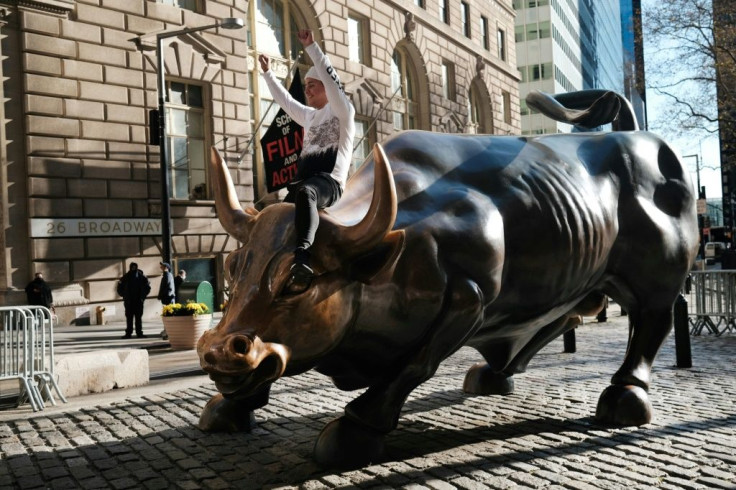Global Financial Markets May Be Overconfident, IMF Warns
Investors may have become overly complacent about financial conditions, creating the risk of a sharp downturn in markets, the IMF said Wednesday.
While policymakers must keep interest rates low to ensure economies recover from the Covid-19 crisis, they also must remain vigilant about potential problems, the IMF cautioned in the latest update to its Global Financial Stability Report.
"Financial stability risks have been in check so far, but we cannot take this for granted," said Tobias Adrian, head of the IMF's Monetary and Capital Markets Department.
With borrowing rates at record lows and new vaccines boosting hopes of a solid recovery in activity this year, prices for stocks, corporate bonds and other risky assets have risen globally, while markets have shrugged off new waves of coronavirus infections.
Adrian said the concern is that values have become "stretched," pointing to the tech sector where "we're detecting some frothiness."
Technology companies have seen a huge increase in share prices, as many have benefitted from the pandemic and trends towards shopping online and working from home.
In US markets, the S&P information technology sector jumped 42 percent in 2020, while increases among major companies were stunning: Apple surged 82 percent, Amazon 76 percent, Facebook 33 percent and Google-parent Alphabet 31 percent.
Markets are "betting that continued policy support will offset any bad economic news in the short term and provide a bridge to the future," Adrian said.

But the "disconnect between exuberant financial markets" and the lagging economic recovery "raises the specter of a possible market correction."
The Washington-based crisis lender, which projects global growth will recover by 5.5 percent this year, has hammered home the message that governments should continue to provide as much economic support as possible.
"Reducing or withdrawing support at this stage could jeopardize the global economic recovery," Adrian said.
However, policymakers must be watching for "unintended consequences" of stimulative policies.
"You want risk taking, but you don't want excessive risk taking. Getting the balance right is really the goal of regulation that has to accompany monetary policy at all times," he said in a press briefing.
While banks have sufficient capital and have maintained the flow of credit, that may change if institutions become concerned about debt levels or creditors' abilities to repay loans, the report cautioned.
And Adrian said regulators must look not just at individual institutions, but at interconnections between banks -- something that was missed in the runup to the 2008-2010 global financial crisis.
© Copyright AFP 2024. All rights reserved.




















